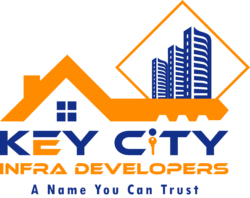Real Estate Industry and Competitors: Navigating a Dynamic Market
In the competitive landscape of the real estate industry, understanding your competitors and market dynamics is crucial for success. Whether you’re a real estate agent, investor, developer, or property manager, recognizing how competitors operate and leveraging market insights can help you differentiate yourself and achieve your business objectives. Here’s a comprehensive guide to navigating the real estate industry amidst competition:
Understanding Market Dynamics
The real estate market is influenced by various factors that shape supply, demand, and property values. Key dynamics include:
- Market Segmentation: Different segments such as residential, commercial, luxury, and rental markets have distinct customer bases and investment criteria.
- Economic Factors: Interest rates, employment trends, inflation rates, and economic stability impact affordability and housing demand.
- Local Market Trends: Regional variations in property prices, inventory levels, and demographic shifts influence market conditions.
Identifying Competitors in the Real Estate Industry
Competitors in the real estate industry encompass a diverse range of professionals and entities:
- Real Estate Agencies: Local and national agencies competing for listings, clients, and market share.
- Individual Agents: Independent agents specializing in specific neighborhoods or property types.
- Investment Firms: Institutional investors, real estate investment trusts (REITs), and private equity firms acquiring properties for rental income or appreciation.
- Developers: Companies involved in property development, construction, and urban revitalization projects.
- Online Platforms: Real estate websites and tech-driven platforms offering property listings, market data, and virtual tours.
Strategies for Competing Effectively
To thrive in a competitive real estate market, consider the following strategies:
- Differentiation: Highlight unique selling propositions (USPs) such as expertise in niche markets, personalized client service, or innovative marketing strategies.
- Market Research: Conduct thorough market research to identify trends, pricing strategies, and customer preferences.
- Networking: Build strong relationships with industry peers, potential clients, and local influencers to expand your network and referral base.
- Technology Integration: Adopt advanced tools and platforms for property listings, virtual tours, CRM systems, and digital marketing to enhance efficiency and client engagement.
- Continuous Learning: Stay updated on industry trends, regulatory changes, and emerging technologies through professional development and networking events.
Monitoring and Adapting to Market Changes
Real estate markets are dynamic, requiring agility and proactive strategies to respond to shifts in:
- Consumer Behavior: Changes in buyer preferences, demographics, and lifestyle choices influencing property demand.
- Competitive Landscape: Monitoring competitor activities, pricing strategies, and market positioning to adjust your own approach.
- Regulatory Environment: Stay informed about local regulations, zoning laws, and environmental policies affecting property development and transactions.

Leveraging Market Insights for Success
By understanding competitors and market dynamics, real estate professionals can leverage insights to:
- Enhance Client Service: Provide tailored solutions, market expertise, and transparent communication to build trust and loyalty.
- Optimize Investments: Identify high-potential properties, evaluate risk factors, and maximize returns on investment.
- Expand Market Reach: Target new demographics, geographic areas, or property types based on market trends and opportunities.





